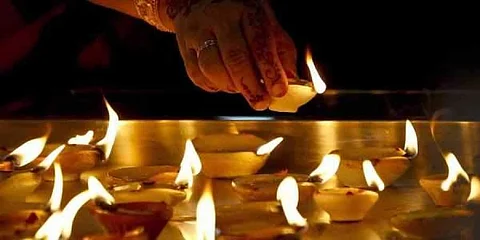

A lot of the lockdown-struck folk are certainly looking forward to Sunday. When the clock strikes 9 pm, all the electric lights in their homes will be turned off. For the next nine minutes, diyas, flashlights and candles will illuminate their homes. Prime Minister Narendra Modi on Friday morning asked all the Indians to do this to display the country's "collective resolve" to defeat the COVID-19 pandemic.
This would normally have been good news for around 2,000 potter families that reside in Dharavi, one of the largest slums in the world. Diyas reach the markets of many Indian cities from Dharavi, around the time of Diwali. But this Sunday, will diyas light in the houses of these DIY makers? Activists who work alongside them do not think so.
To begin with, Dharavi is under complete lockdown and no one from the city dares to step inside the slum in the current situation, they tell us. The area reported its third COVID-19 positive case on Friday and health experts are worried that this may worsen the situation, considering how lakhs of people live there in congested makeshift houses. "The Prime Minister's call to light lamps will not have any effect on the sales of diyas in Dharavi," says Megha Gupta, an urban planner, who runs dharavimarket.com, an online portal for the craftsmen in the slum to sell their goods directly. "Nobody dares to go to Dharavi now, in the time of this lockdown. The potters make diyas throughout the year and they usually get a lot of export orders in March and April," says Megha.
Megha is relieved that the COVID-19 cases aren't spiking in the slum area. "People are taking precautions and are doing their best," she says. Navneet, who runs a learning centre inside the slum also had something similar to say. "People are scared to go to Dharavi. This is a place where it is really difficult to practice social distancing. Everyone, including the diya makers and house helps are all struggling for their survival," he says.
"The PM's initiative will have no impact on Dharavi. It is just a diversion from the real issue," says Navneet. "The need of the hour is to work with the poor and to make help available to these communities. These people are struggling and are suffering the most," he adds.
